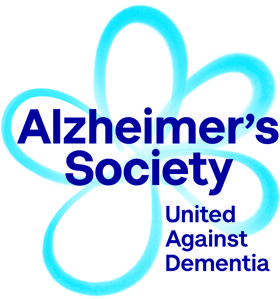
Dementia Symptoms Checklist: How to Spot the Early Signs
Published: 21/09/2023
Dementia Symptoms Checklist: How to Spot the Early Signs
Dementia is a progressive and devastating neurological condition that affects millions of people worldwide. It robs individuals of their cognitive abilities, memories, and independence.
While there is no cure for dementia, early detection can make a significant difference in managing the condition and improving the quality of life for those affected.
In this article, we will explore a dementia symptoms checklist to help you spot the early signs, understand the importance of early detection, and provide guidance on when to seek professional help.
What is dementia?
Dementia is not a single disease but a term used to describe a group of cognitive impairments that interfere with a person's daily life. It encompasses various types, with Alzheimer's disease being the most common.
Other forms include vascular dementia, Lewy body dementia, and frontotemporal dementia. Each type presents its unique challenges, but they all share the characteristic decline in cognitive abilities.
Dementia is a global health concern, affecting an estimated 50 million people worldwide. As the population ages, this number is expected to increase. The impact of dementia extends beyond the individual, affecting families, caregivers, and society as a whole. Early detection can help individuals and their families prepare for the challenges that lie ahead.
What are the common early signs of dementia?
Recognising the early signs of dementia is crucial for timely intervention and support. Here are some common early symptoms to look out for:
Memory Loss
Often the earliest sign of dementia is an increase in forgetfulness and difficulty recalling recent events. This could mean forgetting names, dates or appointments. It could also lead the person to forget recent conversations or interactions.
Changes in Cognitive Abilities
Another common early sign of dementia is an increased difficulty in problem solving. This could mean the person finds it more difficult to solve simple problems or to make decisions. This is because of a decline in their cognitive abilities. They could also start to become confused about time and place. This could mean losing track of dates, seasons or locations.
Communication Problems
As the condition progresses, the individual might start to struggle to express themselves. This could mean struggling to find the words they need to convey the correct meaning. They are more likely to forget words in the early stages, and this can lead to frustration.
Another common sign of dementia is repeating oneself, which could mean that the individual repeats stories or phrases within a short timeframe.
Changes in Mood and Behaviour
The loss of cognitive function and poor memory can be incredibly frustrating for a person who is otherwise healthy. They might start to show signs of agitation and irritability, as their cognitive function declines and they struggle to remember things or express themselves.
This can lead to feelings of anxiety and depression, or it could lead to extreme mood swings. Anger can give way to sadness without warning. It can also lead to more prolonged periods of sadness and depression.
Challenges with Daily Tasks
Even at the early stages of the disease, the individual might struggle with daily tasks that were once very easy. This could include struggling with personal care or getting dressed appropriately. This is because their ability to problem solve and plan ahead is impaired.
Another common sign of dementia is trouble staying organised. This could mean that planning daily activities becomes more difficult, they might struggle to stay on top of their finances, and simple things like following a recipe will become unmanageable.
Creating a Dementia Symptoms Checklist
Now that you know the early stages of dementia, you might consider creating a checklist to help monitor someone your suspect is
A dementia symptoms checklist can serve as a valuable tool for early detection. It allows individuals and their families to monitor changes in cognitive function. These are some of the reasons you might want to support a loved one by keeping track of their cognitive abilities.
Why create a checklist?
The checklist serves as a baseline for tracking cognitive changes over time. It helps identify patterns or significant deviations from normal behaviour. Once the early signs of dementia are present, friends and family can support the individual by keeping track of changes to their mood and cognitive abilities. This can also help to spot patterns and triggers, which can help in diagnosing and treating the condition.
How can a checklist help in diagnosis?
If you suspect dementia based on the checklist, consult a healthcare professional for a comprehensive assessment. Early diagnosis enables timely intervention and access to support services.
The individual might not be aware of these symptoms, so the healthcare professional will rely on insight from those around them to assist with the diagnosis. By keeping track of the progression of these individual symptoms, you can start to see patterns in the frequency and the severity.
Family members and caregivers can use the checklist to track changes in a loved one's behaviour and cognitive abilities. It provides a clear picture of any concerning symptoms.
Regularly updating the checklist allows you to monitor the progression of symptoms and provide healthcare professionals with valuable information.
When to seek professional help
Early detection is vital for managing dementia effectively. Here are some guidelines on when to seek professional assistance. In particular, look out for these red flags that indicate
- Sudden and severe changes in cognitive function.
- Safety concerns, such as wandering or neglecting personal care.
- Hallucinations or delusions.
These red flags could indicate that it is no longer safe for the individual to live independently. At this stage, you would want to start thinking about home care to offer additional support. Home help is preferable, as it means that the person can stay in their own home for longer, which can improve health outcomes.
Conclusion
Recognising the early signs of dementia through a symptoms checklist is a crucial step in providing the support and care needed for individuals and their families. By understanding the importance of early detection and seeking professional help when necessary, we can work towards improving the quality of life for those affected by this challenging condition. Stay vigilant, stay informed, and remember that early intervention can make a significant difference in the journey of dementia.
If you're concerned about a loved one's health or wellbeing, we can arrange a home visit to determine if daily personal care or live-in care could give your loved one the support they need to continue living independently.
If you'd like to explore the possibility of introducing a carer or even a simple companionship visit to your home, get in touch with our friendly team today. We care for people in Camden, Hampstead, Golders Green and surrounding areas.
Our friendly and supportive team can be reached by calling on 0203 921 1111 or by emailing us at camden.hampstead@rightathome.co.uk

